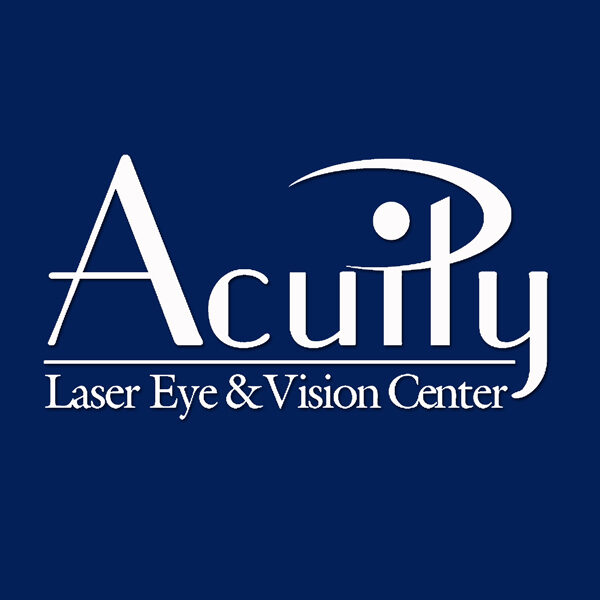f.a.q.
Your questions about laser vision correction surgery answered
The chance of complete blindness is extremely remote and has never occurred in any of our patients. As with any surgical procedure, there is some potential risk. The key to reducing the risk is to be thoroughly evaluated to be sure you are a good candidate for laser vision correction, and to comply with all medications and instructions for care both pre- and post-operatively.
We use powerful numbing drops, but there can be some temporary discomfort. The eye itself will be anesthetized during the procedure, but the eyelids are not, so squeezing may lead to some minor discomfort.
In good candidates, there is typically no need to worry about ever having to wear the same prescription again in the future. Once the eye heals, it typically does not change. If it does, your vision may lessen but may be improved with an enhancement procedure pending results of evaluation at that time.
In some cases the thickness and/or the shape of the cornea may REQUIRE that a surface treatment like PRK or Epi-LASIK, that does not require a corneal flap, as a better long-term solution. Furthermore, some people have dangerous occupations that might involve a risk of eye injury. These patients are often better suited to a flapless procedure like Epi-LASIK OR PRK.
You can resume driving as soon as you feel comfortable with your vision. Most LASIK patients take 1-2 days off following their procedure before they resume driving. Typically patients who have PRK or Epi-LASIK find they are at 20/40 vision, the minimum driving vision recommended by Acuity, in five days to one week after the procedure.
f.a.q.
YOUR QUESTIONS ABOUT LASIK ANSWERED
Studies have shown that nearly every patient experiences a marked improvement in their vision as compared to their previously uncorrected vision with glasses or contacts. Over 99% of patients will attain corrected vision that will meet or exceed the DMV licensing requirements.
Every effort is made to ensure that our patients have a very comfortable experience during and after their procedure. Most patients experience no pain and are able to return to their routine activities the following day.
Once you eyes have stabilized after surgery, the correction is permanent. In the rare event that your vision does change, re-treatment is a possible option. We would perform a thorough examination and ensure adequate corneal thickness is present before any further correction.
Yes, ONE very big one. You see better! Seriously, over 17 million people have had LASIK over the last 20 years. Refractive surgeons have been performing a similar procedure for over 50 years, a procedure known as automated lamellar keratoplasty (ALK). There have been a few reports of the cornea becoming unstable years after the procedure is performed. These cases are very rare, and occur mostly in cases where the residual corneal bed is below 250 microns (0.25mm). When Dr. Vale performs the LASIK procedure, He measures the corneal thickness prior to the surgery to ensure that he leaves at least 295 microns in the stromal bed. With the Epi-LASIK technique he often leaves more than 360 microns in the stromal bed. We can discuss this and any other concerns you may have at your consultation.
The cornea is about 90% healed in the first 24 hours after the LASIK procedure. You can resume full activity after two weeks. However, there will be continuous healing for 3-6 months, and the eyes may change anytime during that period.
This depends on your best correctable visual acuity. Some of our patients achieve better than 20/20 vision! Most patients achieve their full desired visual acuity. If the desired visual acuity is not achieved, an enhancement procedure may be performed three to six months after the initial procedure.
During the procedure, we will ask you to focus on a blurry, blinking red light. Immediately after the procedure the red light should become much clearer, and you should notice an improvement in your vision.
This is a common fear many patients have. Since every patient moves during the procedure, the laser treatment is designed to stop instantly if necessary. Our lasers have eye trackers that will follow your eye during the procedure. The laser delivers the pulses wherever they are supposed to go, despite any eye movements.
To minimize blinking, your eye will be numbed by an anesthetic. Even if you blink, the eye is held open by a small device called speculum, a minimal discomfort, and the laser’s eye tracker will still track your eyes to ensure proper laser placement.
Patients will wear a clear shield immediately after the procedure and during sleeping hours.
The minimal scarring that sometimes occurs will be out of the visual axis (will not affect vision) and can only be seen with a microscope.
In general, patients who see well with glasses or contact lenses, have healthy eyes and are in good health are good candidates for laser vision correction. Whether or not you should undergo the procedure is a decision that should be made after a comprehensive exam by a skilled ophthalmologist who specializes in laser vision correction. Our exam will allow the patient and the doctor to discuss all options available such as LASIK, Epi-LASIK, PRK, LASEK, Intacs, LRI, or ICL.
Laser vision correction is very safe, when performed by a skilled surgeon. Dr. Vale has performed over 31,000 refractive procedures since 1994, longer than any other eye surgeon in Pennsylvania. Complications are VERY rare, nationally complications occur less than 1/10 of 1% of all LASIK surgeries. Most complications can be treated with eye drops or a repeat procedure. More serious complications are rare because the procedure is limited to the front surface of the eye and not inside the eye. Worldwide, there have been few reports of blindness caused by LASIK and none of Dr. Vale’s patients are know to have lost significant vision. Without glasses or contacts lenses, Dr. Vale’s patients have had improved near or distant vision. Dr. Vale and our staff will thoroughly discuss any risks and benefits before the surgery.
At the examination, we will gather data about your eyes including: refraction, measurement of current glasses, infrared pupillometry (measurement of nighttime pupil size), pachymetry (measurement of corneal thickness), corneal topography (using up to 3 different systems to measure both the outer and inner surfaces of the eye), by way of wavefront analysis. Based on these findings, our surgeon, Dr. Steven Vale, will select the best treatment for your eyes. He will take as much time as is necessary to thoroughly understand your expectations and explain the risks and benefits of the procedure.
Laser procedures are very effective in correcting myopia (nearsightedness), hyperopia (farsightedness) and astigmatism. These disorders are a result of a corneal curvature that is either too steep or too flat for the length of the eye. Vision is improved when the laser reshapes the curvature of the cornea. After reaching the age of 45 most people experience a decline in the quality of their reading vision. This problem is age-related and is due to a weakness of the focusing mechanism of the lens of the eye. Although laser vision correction cannot directly correct a focusing problem, LASIK can give good distance and reading vision to many patients by readjusting the focus of their eyes. During your pre-op exam, we will let you experience what you can expect to see after your procedure.
NOTE: This information is for general education purposes only. It is not to be used as a substitute for medical advice from your doctor.
DO YOU HAVE OTHER QUESTIONS? Please contact our office at 877-520-3937 and our knowledgeable staff will assist you.

